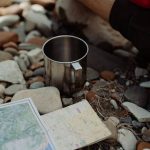The Ultimate Guide to Camping with a Generator
The Ultimate Guide to Camping with a Generator
Camping is a great way to disconnect from the hustle and bustle of daily life and reconnect with nature. However, the idea of completely unplugging can be daunting for some. Enter the camping generator—a handy tool that allows you to enjoy the great outdoors without sacrificing the comforts of modern life. In this ultimate guide, we will walk you through everything you need to know about camping with a generator, from choosing the right model to maintaining it for long-term use.
Why Use a Generator When Camping?
Generators are essential for those who want to enjoy the wilderness without giving up on essential amenities like lights, portable fridges, and even charging your electronic devices. According to a survey by the National Park Service, 60% of campers use some form of power source during their trips, and generators are among the most popular choices.
Convenience and Comfort
Using a generator can help you power various camping gadgets, making your trip more convenient and comfortable. You can cook meals using electric stoves, keep your devices charged, and even run a small heater during cold nights.
Safety
Generators can be beneficial for safety reasons as well. Having a reliable source of power can keep your campsite well-lit, deterring potential wildlife intrusions. According to the National Wildlife Federation, well-lit areas are less likely to attract animals.
How to Choose the Right Camping Generator
Selecting the right generator is crucial for a successful camping trip. Here are some key factors to consider:
Power Output
The power output of a generator is measured in watts. To determine how much power you need, list all the devices you plan to use and their wattage requirements. As a rule of thumb, it’s better to choose a generator with a slightly higher wattage than you think you’ll need.
Portability
When camping, portability is key. Look for a generator that is lightweight and easy to carry. Some models come with built-in handles or wheels for added convenience.
Noise Level
Generators can be noisy, which can ruin the tranquility of your camping experience. Opt for models that are specifically designed to operate quietly. The noise level is usually measured in decibels (dB); aim for a generator that operates below 60 dB.
Fuel Type
Generators can run on various fuel types, including gasoline, propane, and solar power. Each type has its pros and cons, so choose one that best fits your needs and availability of fuel sources.
Setting Up Your Generator
Proper setup is crucial for the efficient and safe operation of your generator. Follow these steps to set up your generator correctly:
Location
Place your generator on a flat, stable surface away from flammable materials. Ensure it is at least 20 feet away from your tent or RV to avoid carbon monoxide poisoning. According to the Centers for Disease Control and Prevention (CDC), carbon monoxide poisoning is a serious risk when using generators improperly.
Grounding
Proper grounding is essential to prevent electrical shocks. Follow the manufacturer’s instructions for grounding your generator, usually involving a grounding rod and a wire.
Fueling
Always add fuel to your generator before starting it. Refueling a hot generator can lead to spills and fires. Use a funnel to avoid spills and always cap the fuel tank securely.
Maintenance Tips for Your Camping Generator
Maintaining your generator ensures it will be reliable for future camping trips. Here are some maintenance tips:
Regular Oil Changes
Just like a car, your generator needs regular oil changes. Check the manufacturer’s guidelines for the recommended oil type and change frequency.
Clean the Air Filter
The air filter should be cleaned or replaced regularly to ensure optimal performance. A clogged air filter can reduce efficiency and increase fuel consumption.
Store Properly
When not in use, store your generator in a cool, dry place. If you won’t be using it for a while, consider draining the fuel tank to prevent gum buildup.
Tips for Using Generators Responsibly
While generators are incredibly useful, they can also be disruptive to other campers and harmful to the environment if not used responsibly. Here are some tips:
Follow Quiet Hours
Many campgrounds have designated quiet hours. Be respectful of these times to ensure a pleasant experience for everyone.
Use Eco-Friendly Models
Consider using eco-friendly generators that produce fewer emissions. Solar-powered generators are a great option for environmentally conscious campers.
Dispose of Waste Properly
Properly dispose of any waste products, such as used oil and old filters, to minimize your environmental impact.
Conclusion
Camping with a generator can significantly enhance your outdoor experience, providing you with the comforts of home while allowing you to enjoy nature. By choosing the right generator, setting it up correctly, and maintaining it properly, you can ensure a safe and enjoyable trip. Remember to use your generator responsibly to minimize your impact on the environment and other campers. Happy camping!

Leave a Reply